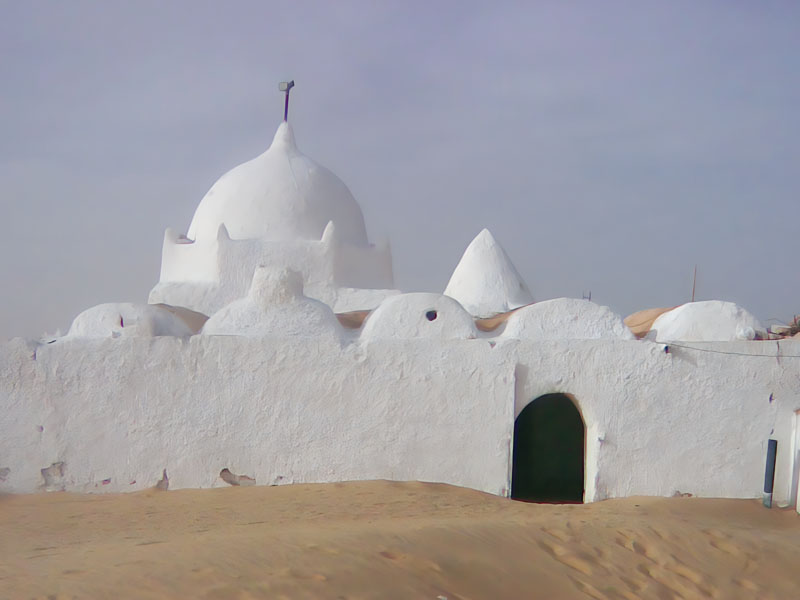The Belief and Practice of Wa’dah in Algeria
Issue 17

abdulqader Fatees (Algeria)
nlinguistic terms, a ritual is a religious ceremony that involves a series of actions performed in a certain manner, but it is hard to find a conventional description of the word.
Psychologists, anthropologists and folklorists have put a great deal of effort into exploring the theoretical background and practices of rituals.
As a ritual, Wa’dah is governed by conditions of time, space and traditions that have been passed down through the generations.
The word ‘Wa’dah’ is derived from the Arabic ‘Wa’ada’, which means promise or pledge. Wa’dah is a religious ceremony performed by the sons, grandsons, other descendants or followers of a saint.
The ritual is performed to ask for a bright future and for the saint’s blessings and grace. His descendants or followers organize a visit to the saint’s shrine, inviting visitors from around Algeria. They slaughter sheep, cows and camels, prepare couscous and serve it to visitors and the needy. The ceremony is an opportunity to enhance social cohesion among the tribes and social groups. The visitors and performers come together to honor the saint.
The Algerian people believe that when a saint, who is considered a protector, dies, his soul remains close to his shrine. People call on him for help, blessings and grace. They also call in his name when they experience disasters and adversities.
People have long believed that both living and dead saints, ‘Wali’ in Arabic, have the power to bless them and to perform miracles.
The people of Algeria defend rituals such as Wa’dah as holy practices and as part of their heritage. Algerians were particularly determined to protect their rituals and traditions during the French colonial period.
Algerians perform these rituals to atone for their sins, using the saint as an intercessor. The saint is a social phenomenon created by society’s imagination to represent signs and symbols of their culture.
Wa’dah is an anthropological religious phenomenon that has helped to ensure that culture, values and heritage are passed down from generation to generation. Wa’dah was also an essential part of Algerian identity when the Algerians were under French colonization.
Wa’dah has religious, social and cultural functions and connotations. Practiced in the countryside, in villages and in cities, Wa’dah is an important part of the religious culture of Algeria.



































































